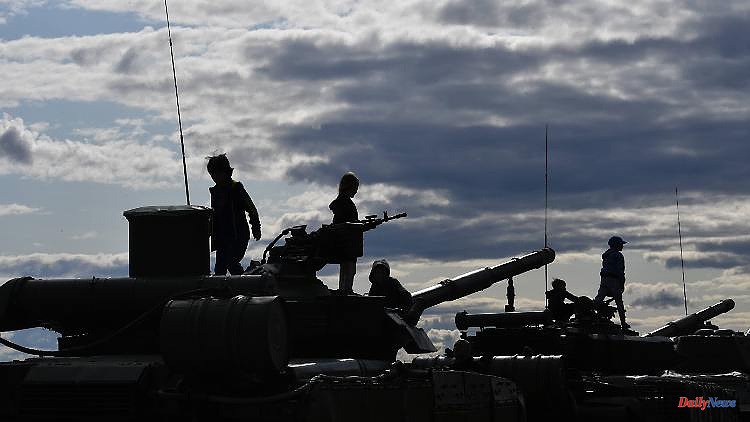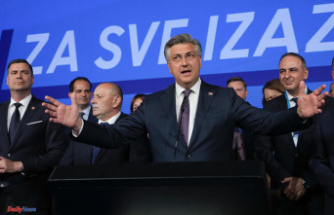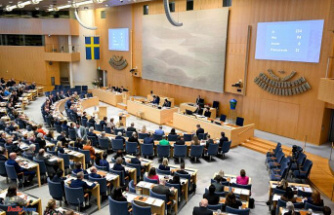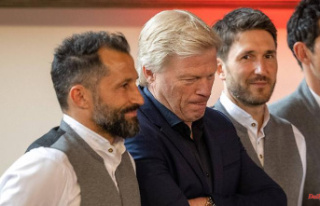In order to quickly deliver tanks to the Ukraine, states send vehicles of Soviet design, Germany then fills up the stock of the delivering country with its own material - the whole thing is then called ring exchange. However, the concept fails in some cases. The federal government should be to blame.
The unsuccessful negotiations about a tank ring exchange are increasingly burdening the German-Polish relationship. The government in Warsaw is angry because Germany does not want to replace the Polish tanks of Russian design, which Poland has already handed over to Ukraine, as promised. This is reported by the "Spiegel". "The Germans made promises to strengthen our defense capabilities, but unfortunately none of them have been implemented," Polish Deputy Foreign Minister Szymon Szynkowski vel Sek told the magazine.
At the beginning of the week, Federal Defense Minister Christine Lambrecht from the SPD confirmed in a confidential meeting with security politicians that talks with Poland about the tank ring exchange had failed. The problem: Poland is said to have delivered almost all of its 240 Russian-made tanks to Ukraine - and is demanding German "Leopard" tanks of the most modern series as replacements. The Bundeswehr doesn't even have these, so a quick delivery to Poland is impossible, according to the Spiegel report.
Poland now feels deceived by Berlin. "Germany has promised to replenish our stocks, but has done nothing," Deputy Foreign Minister Szynkowski vel Sek told the magazine.
The ring swap is a concept introduced by the federal government to get heavy weapons into Ukraine. In order to provide operational tanks and tracked vehicles as quickly as possible, states send vehicles from Soviet stocks to Ukraine, and Germany subsequently fills up the stocks of the releasing country. For the Ukrainian army, the introduction and training on the weapons is no longer necessary. Supplying modern weapons directly from German armaments manufacturers to Ukraine fails, among other things, because of the long construction times.
So far, the ring exchange has not been a real success story. Only weeks after the initiation, Germany wants to deliver 15 Leopard 2 A4 tanks to the Czech Republic - and thereby enable Czech weapons to be passed on to Ukraine. Ambassador Andrej Melnyk complained to the editorial network Germany that the announced ring exchange with T72 tanks for the Ukraine from Slovenia had not worked so far because Germany apparently did not offer Slovenia an adequate replacement. Melnyk suspected that the unwillingness to "finally implement the historic decision to use heavy weapons" is one of the reasons why Chancellor Olaf Scholz has not yet wanted to travel to Kyiv.
6












